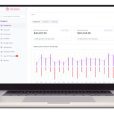As an industry which had already been fighting for survival before the coronavirus pandemic, the stark reality is that the retail sector will never recover from the fallout of COVID-19.
Walking through the corridors of Highpoint Shopping Centre during normal trading hours, more than 80% of retail stores had shut their doors, the only ones remaining open being the likes of Target, Big W and supermarkets.
Even the food courts, where shutdown restrictions allow trade for vendors to serve takeaway, were a sombre sight with skeleton staff in what was strictly damage minimisation rather than profitable trade.
Due to the lack of foot traffic, retail chains had no choice than to shut their doors where the cost of staffing exceeded possible in-store sales but such a shutdown has been a long time coming, coronavirus just gave owners a reason to push the button. As my colleague Bronte Moore identified last month, the retail goods sector has been fighting a losing battle for quite some time.
With clothing brands feeling the majority of the wrath, we have seen Premier Brands, Cotton On Group and Mosaic Brands all shut their door temporarily over the past few weeks, standing down more than 40,000 staff between them and shifting their business models to purely online sales.
These include the popular brands Noni B, Rockmans, Millers, Katies, Rivers, Just Jeans, Smiggle, Dotti, Peter Alexander, Jay Jays, Portmans, Cotton On, Typo and Supre.
Using the multi-brand model, I have already been cross-promoted to by brands owned under the same banner. As marketing departments realise the impact on their sales, it will quickly become the common industry practice.
Whilst the Australian Government’s JobKeeper program has been aimed at supporting employees who have lost their jobs, notably in the retail and hospitality industries, it doesn’t address the problem in full. Employers who keep their staff on are essentially keeping them there to stand around and do nothing for $1,500 a fortnight, not to mention the additional administrative costs to claim back those subsidies.
Prime Minister Scott Morrison forewarns that the economic impact of the coronavirus pandemic will last six months. This gives Australian retailers six months to shift their operations online before formally confirming they will not reopen their retail stores after. Unfortunately for the many who have lost their jobs, this is a formality and we only need to glance at the many vacant shopping malls in the United States where Amazon and eBay had cannibalised the industry.
Some stores will open their doors once the pandemic is over but unfortunately for the majority, the retail sector in Australia will never be the same with the coronavirus only confirming what had already been inevitable.
- Harris Technology to expand refurbished tech division amid rising demand from cost-conscious Australians - April 30, 2025
- Harris Technology secures major investment from Taiwan’s FSP Technology at 100% premium - March 10, 2025
- ARC Funds acquires 30% of auzbiz Capital as latest direct-to-investor marketing venture - October 8, 2024













Leave a Comment
You must be logged in to post a comment.